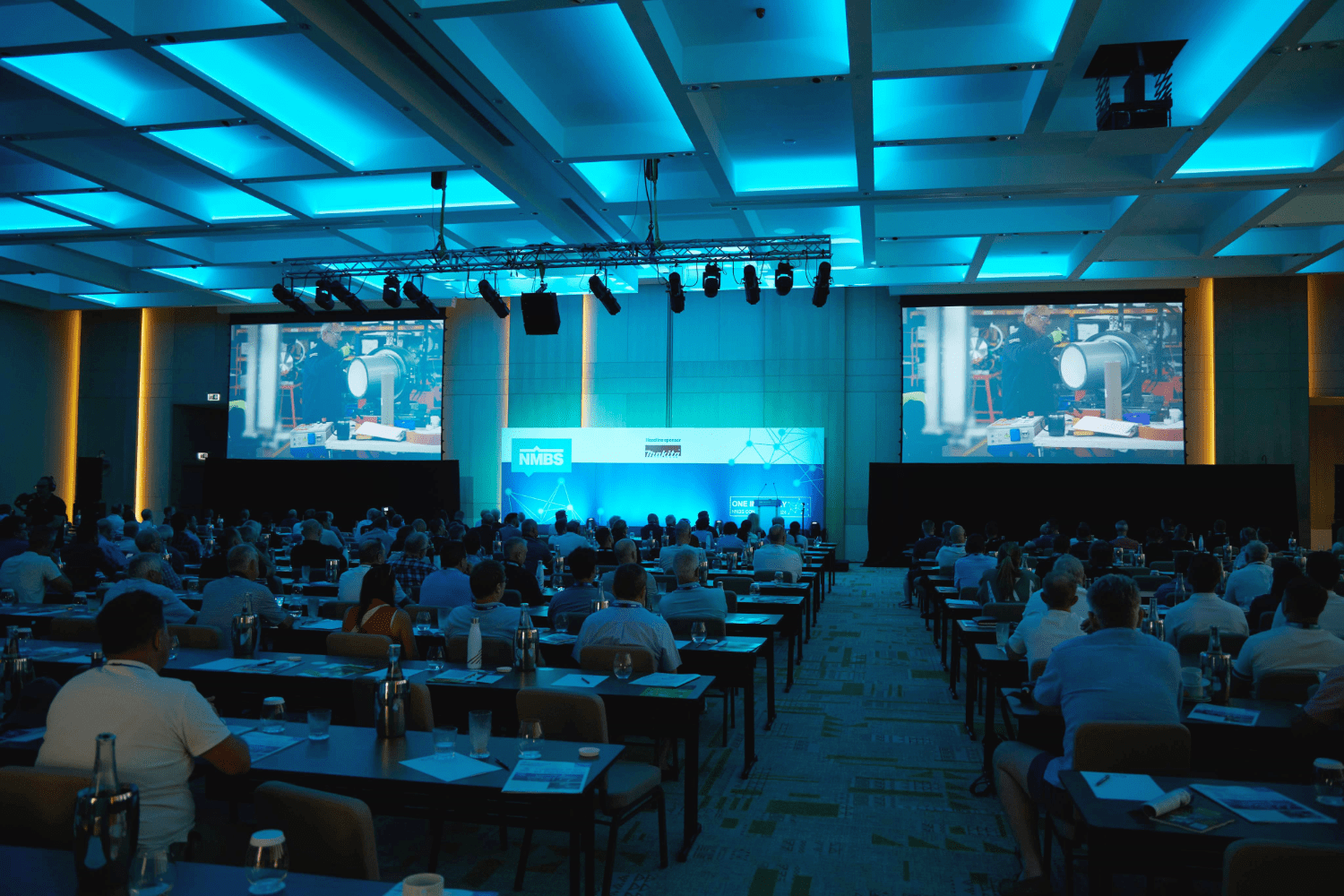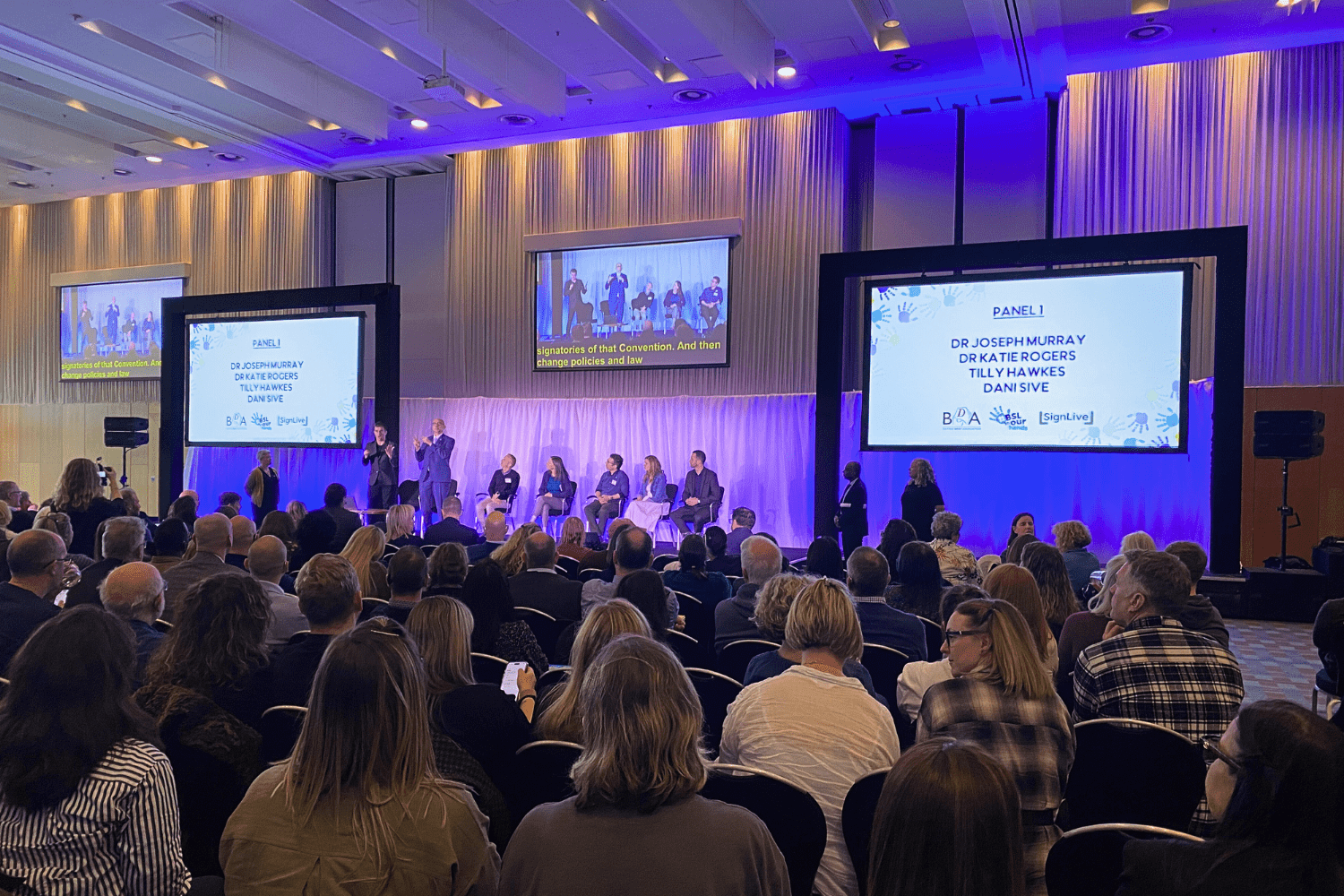 Back to News Room
Back to News Room
News

The essential conference planning checklist
A quick introduction
Conference planning for success can feel like riding a bull in a rodeo. Chances are you’ll be clutching onto your event vision for dear life as time, plus building costs and responsibilities come to buck you off course.
Whilst conference planning isn’t anywhere near as dangerous as bull riding (or so we hope), it can however be a turbulent ride without knowing exactly how to plan for each stage.
That’s why our event team have created the ultimate conference planning checklist for organising a seamless conference event.
Whether you’re a newbie or it ‘ain’t your first rodeo’, if you’re planning a conference in 2019 this high-level checklist will fill you in on all you need to prepare well, master your event delivery and finish the conference with plenty of engagement opportunities.
And in one piece too!
Essential conference planning preparation
A QuickMobile survey of event planners found that 42% work 15 to 20 hour days during the event planning process. Heavy stuff! Conferences are among the more complex corporate events to organise, so making sure you start preparations as soon as possible may help you catch up on ZZZs when the stress starts piling on.
If you have 18 months, start then. If you have 3 – you might be pulling a few longer days but with this conference planning checklist you should be able to plan your conference smoothly.
Smooth preparation in the early stages should involve getting the right people on board and setting down your strategy.
- Confirm your conference objectives, KPIs and budget
You'll already have an idea of why you want to organise a conference, but it’s beneficial to get sign-off on what you’re looking to achieve with the event, how you’ll measure success, and what kind of budget you have to achieve these aims.
- Assign responsibilities to your events team
If you’re lucky enough to have a dedicated team, delegate tasks such as theming, safety, catering and promotions early on so that everyone has clear actionable roles. If you’re going solo, perhaps you may benefit from the help of an event agency depending on the size of your task. The Balance Small Business have written a guide on how to choose an event agency.
- Set deadlines ready for sign-off
Things don’t always go to plan, but having a date signed-off for the conference to work towards (and a close backup if you’re really squeezed for time), will help you better delegate tasks and allow you to see what room you have in the budget to plan for venues and suppliers.
- Look at potential locations for your conference
How will the location of your conference contribute to your overall aims? Choosing an unusual or overseas event destination can provide delegates with a more memorable and unique event experience with new networking opportunities. An impressive location is important in offering additional value for your delegates, but the chosen location must fit in with your event goals, what your delegates want to get from the event, and your budget of course. Need inspiration? _Check out these 5 top conference destinations recommended by our event managers._
- Hunt for sponsors
Corporate sponsors can make all the difference for your budget and provide delegates with a potential network of opportunity. In return for funding or offering their services to help with your event, sponsors will be looking for increased exposure from your audience. That’s why the sponsors you hunt for should align with your conference objectives and your company’s values. Create a sponsorship proposal to source companies and influencers that would be a suitable match; do your research and approach with how exposure from your conference will benefit them.
- Start the search for speakers and VIPs
Again, thinking about what your delegates need from your conference is essential for selecting speakers that will successfully promote your message. Certain speakers may well be booked up in advance so do this step as soon as you can.
Great tools for conference planning
Using suitable tools from the get-go can be a lifesaver when it comes to seamless conference planning. Many event tools are free to use as well. Here are some conference management tools to get you started:
- A project management app: apps like Trello, Slack, and even Google Drive can help you and others working on the conference to organise files and tasks to manageable deadlines.
- Tools for forming ideas: scour the web with Pocket, Pinterest and other social media feeds to generate creative ideas for a more unique and engaging conference. Jot your inspirations down on Evernote or Google Keep, which can easily be shared across your team.
- Effective event management: there are many tools to help with streamlining your ticketing, registration, delegate lists, supplier arrangement, promotions and more. Depending on what your budget can allow for, you could also save hours of your time and expense by outsourcing part of the management to a dedicated event company. This may free you up to hit your conference targets through in-house promotion and selling.
Choosing a quality venue
If you have a location set in stone, finding a conference venue will be a little easier. However, finding a conference venue that will set your event apart can be a little tricky at the best of times, given the sheer variety of venues available.
A suitable conference venue should be:
- Accessible for your delegates and suppliers.
- Able to accommodate your event requirements, i.e. size, set up, accommodation
- Able to offer value for money.
- The commitment to go the extra mile to accommodate for your event needs.
For more guidance on choosing an ideal venue, Talk Business recommends 10 things every conference venue should have.
Step-by-step conference plan
What to plan before you reach 3 months
From around 3 months (or earlier if you can), your research should transpire into actions that will organise your schedule, your speakers and your promotional tasks.
- Reviewing your finances
From this point it might help to review your sponsorship funding, and your budget consistently to ensure you’re not overspending. Doing so may give you some more wiggle room for additional services or supplies that will make a positive impact on your delegates.
- Confirm your topics
Your conference agenda should reflect a theme and topics that relate on a personalised level to your delegates in a meaningful way. As master of conference talks, TED outlines the best ways to come up with inspiring themes and topics for events:
“A theme is the title or tagline of your event.
A topic is a subject area that you’re interested in covering at your event.
An idea is the original concept or notion that your speakers will bring to the stage at your event.”
Share these concepts with your speakers and sponsors so they know what to expect.
- Finalise your speakers
Ask your speakers for their bios and get photos from them to use to promote your conference. See what travel and accommodation booking they’ll need and confirm if they’re happy with their schedules. You should also consider back-up speakers in case someone from your main line-up can’t make it on the day.
- Confirm your conference schedule
How will you be structuring the event and speaker line-up? Will there be workshops and breakout sessions? See these tips from Bizzabo on creating and delivering impactful content.
- Set up ticketing and registration
You should have confirmed ticket pricing and be ready to promote them using your chosen ticketing and registration software.
- Finalise your venue requirements
Check you have the right A/V and technical capabilities; check licenses, permits and signage.
- Promotion
It’s time to round up the delegates! Developing a simple website is a brilliant way to connect with attendees online and capture targeted registrations in line with your marketing. You can also allow delegates to download schedules and print badges via the website for smoother operations on the day.
2 months to go
- Build continued communications with delegates
Use a marketing mix of digital and offline channels to keep the excitement high and provide registered delegates with important information in the lead up till the event. You can also find out more information about your delegates and what they’re looking for in the conference through pre-event surveys.
- Assign on-site responsibilities
- Safety, security and risk management finalisation
- Arrange catering
- Get your registration packs ready
Stressful all-nighters can be avoided if you take the time a few months ahead to set up delegate packs with awesome promotional goodies.
The week before the conference
- Check your schedules
Confirm that schedules have been circulated round to everyone.
- Final check of speaker scripts
- Have a look at final registration numbers
Alert your venue and suppliers of final delegate numbers so they know what to expect.
- Check in with your suppliers
Ensure you’re on the same page with deliveries, timings and set up.
The day before
Eventbrite has put together a guide on organisation before the big day – here’s a rundown to help you prepare and ease the stress:
- Review your ideal timeline for the day, hour by hour.
- Review roles and responsibilities for the day for all tasks big and small.
- Confirm your communication plan so everyone knows how to get in touch if any issues arise.
- Put together kits for your team with items like chargers, contact details and water.
- Get some rest!
- Set a date to dissect the event in the week once it’s completed.
On the day
The day may well involve a LOT of rushing around and reacting to queries or situations that arise, but with all the work your team have put into the conference give yourself some time to breathe and enjoy it! Here are some key tasks to organise the day’s events:
- Get onsite early for a venue inspection
Walk around and check that suppliers are where they should be and the space is in order. Catching issues before delegates start wandering around will save you a lot of stress!
- Confirm pickup of supplies
- Brief your staff
Before the conference kick-off you may want to gather your event staff and address any concerns they may have, run through the schedules and give them the rallying cry to boost their spirits for the day ahead.
- Delegate queries
Have designated staff around the venue space to assist delegates with questions. Depending on the amount of staff you have, you can also delegate responsibilities like assisting speakers, keeping the schedule timing on track, facilitating conversations, posting on social media and gathering feedback.
- Conduct on-site surveys
Event experience surveys are so important for gauging conference ROI, and they can also be used for lead generation purposes. Use survey kiosks, or even your social streams to conduct your survey, and think about offering prizes to boost survey completion.
- Review invoices
If you have time, you can get this less exciting step out of the way so you have more time to relax post-conference. Unless you love invoices – then by all means go wild.
On conference completion
Phew! All that preparation will have paid off, so now it’s time to review your conference success and thank everyone involved.
- Send out a ‘Thank You’ to sponsors, suppliers, staff and delegates.
- Add content from the day to social media
- Send out a post-event survey to measure engagement
Getting data on what delegates took from the conference and any actions they plan to take in line with your event objectives, will help you measure its ROI, so provide post-event survey questions whilst their memories are still fresh.
- Review your data
There’ll likely be a lot of feedback to take in from your event and you’ll want to see how delegate experiences matched up with your conference objectives. Factor in your monetary returns, delegate attendance, survey responses and event coverage into your review to help you highlight what worked well, what worked best and what didn’t work so well. From here you can take these performance indicators into account for future events.
- Relax! (Until next time)…
QuickMobile found that 48% of surveyed event planners choose to unwind with room service and a movie once their event is over with, whilst 20% take a well-deserved ‘staycation’ or have a spa day. Set some time aside to unwind and catch up on rest before diving into the next event plan.
If you’re planning a conference and you’d like guidance on forming a winning strategy and schedule, or you need help with conference management, you can speak to First Event and get a free, no-obligation conference planning consultation with our event team.









